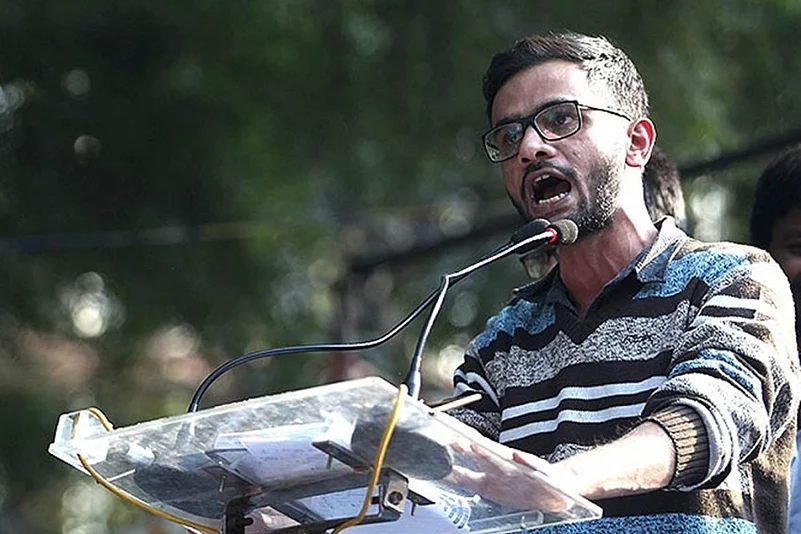Delhi court on Sunday dismissed former Jawaharlal Nehru University (JNU) student Umar Khalid’s request to allow him to meet his family members during the 10-day police remand.
Khalid has been arrested in relation to the Northeast Delhi riots that occurred earlier this year. He has been accused of hatching a conspiracy to incite the communal riots.
Amitabh Rawat, Additional Session Judge at the Karkardooma Court, rejected the application saying, “In the totality of facts and circumstance of the case, I see no merit in the application, and accordingly, the application is dismissed.”
Khalid was arrested on September 13 and the next day the court sent him on a police remand for ten days till September 24.
The Court in its order on September 14 had allowed Umar Khalid to meet his three lawyers, Trideep Pais, Sanya Kumar and Rakshands Deka, for a period of half an hour daily during the police custody.
On September 18, Khalid’s lawyer, Trideep Pais, argued that the police had given him a verbal assurance at the time of remand that the family would be allowed to meet but now the police is refusing.
“Since the PC remand is extraordinarily long and thus accused should not be deprived of meeting with his family or friends,” Pais argued that Khalid should be permitted to meet his family on at least two days for a period of 30 minutes each day.
However, the Delhi Police in its reply asked the court to dismiss the application as Khalid is being confronted with huge data on a regular basis and alleged that he is not co-operating.
Amit Prasad, Special Public Prosecutor, told the court that the meeting of his family members may influence the interrogation and could be a hindrance.
Prasad argued that Khalid is already meeting with his counsel and if he has to convey any message to his family members, he can convey that through his counsel.
Prasad referred to a Supreme Court Judgment of Nandini Satpathy vs P.L.Dani in his argument and said that family meeting is permissible in judicial custody only as per jail rules and not in police custody.
Nandini Satpathy's judgment was delivered in 1978 when there was no statutory provision for legal aid to an accused during police custody. The apex court in this case had allowed the accused to have access to a lawyer so that he or she was not coerced during interrogation.
However, in 2009 Criminal Procedure Code (CrPC) was amended and section 41D was introduced. It says that when a person is arrested and interrogated by the police, he is entitled to meet an advocate of his choice during interrogation, though not throughout the interrogation.
Prasad, while arguing against the application said that the legislature, being conscious of the desire of the family to meet the accused, did not deem it fit to make any provision for the same, thus, what is not provided in CrPC cannot be given otherwise.
Interestingly, the criminal law is silent on whether the family members should be allowed to meet or not during police remand.
















